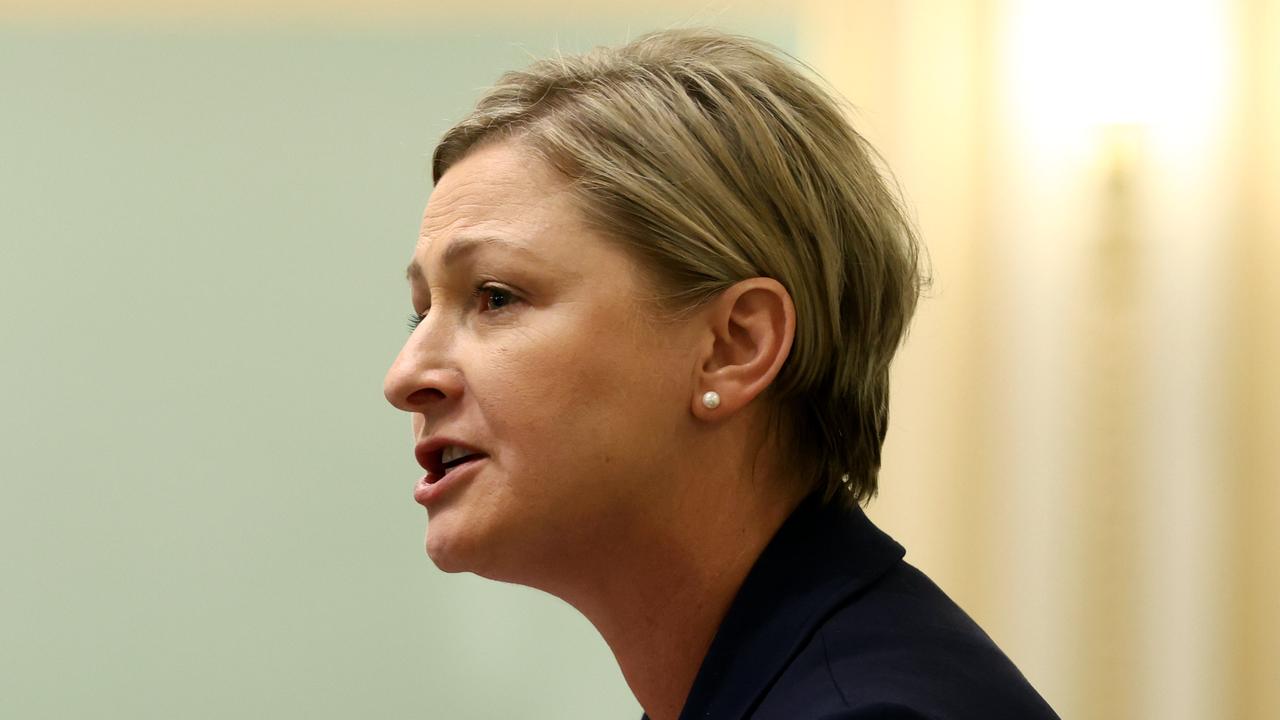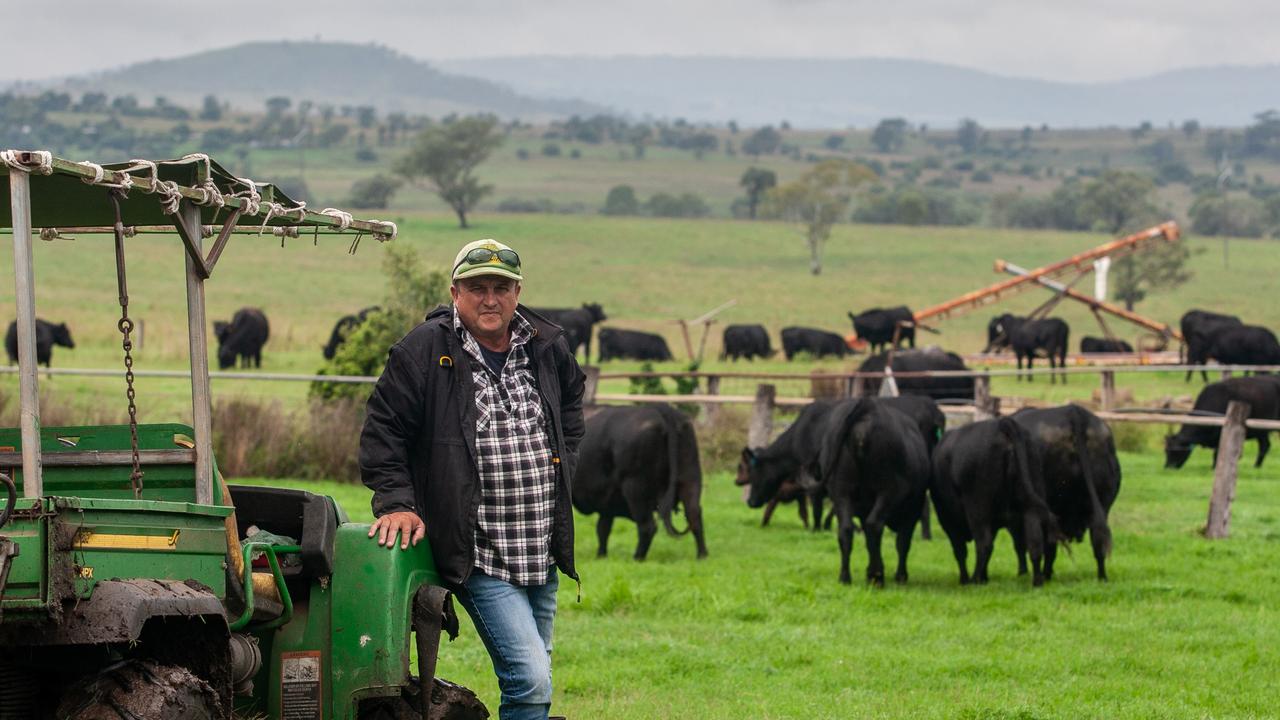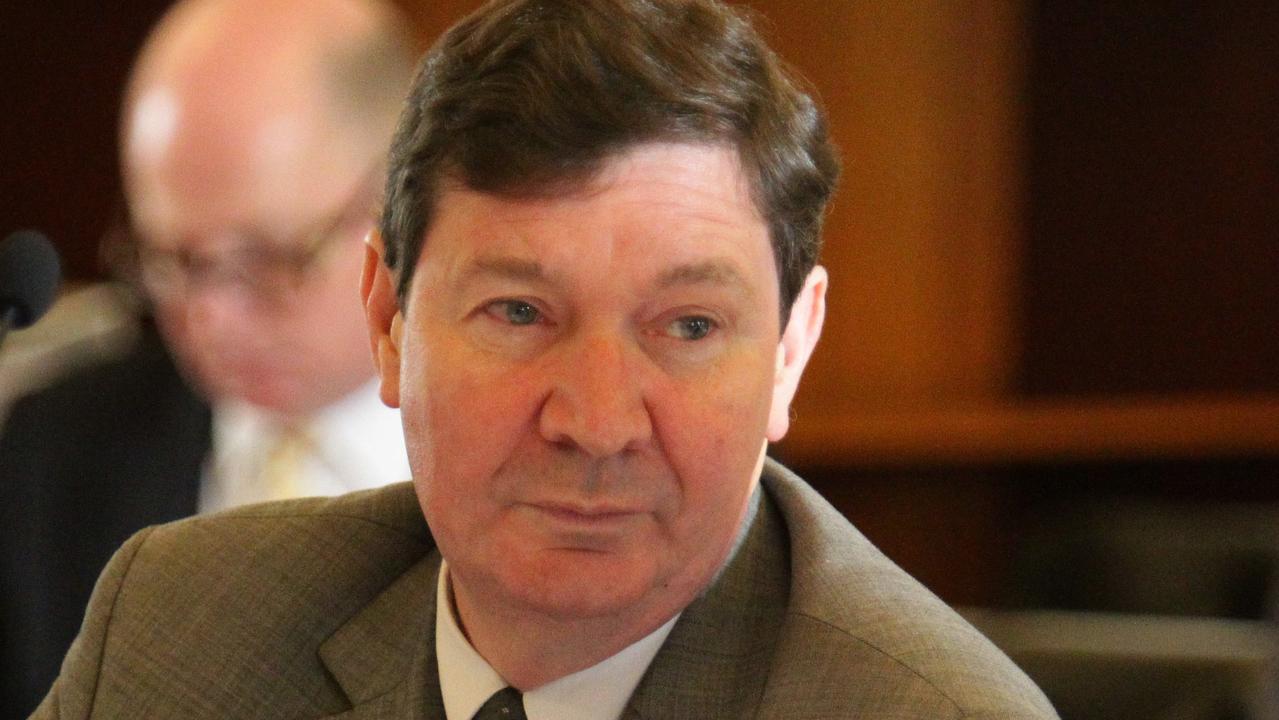QAO pushes for audit committees amid gaps in councils’ financials
The Queensland Audit Office’s latest report has singled out 12 councils without audit committees and called for legislative changes after raising concerns about their financial sustainability.
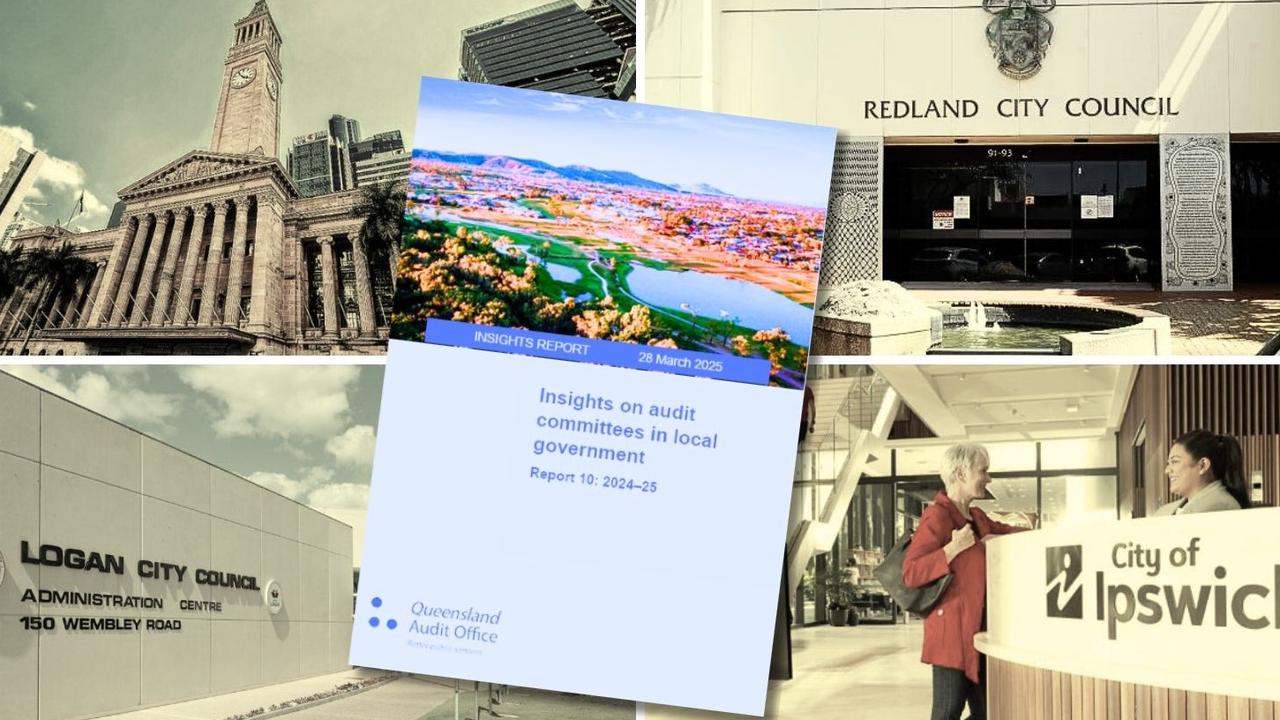
QLD News
Don't miss out on the headlines from QLD News. Followed categories will be added to My News.
The Queensland Audit Office has raised serious concerns about financial sustainability and governance in local councils, highlighting the continued absence of audit committees in 12 regional and remote councils.
The draft Insights on Audit Committees in Local Government report 2024–25, released this week, analyses the role of audit committees in councils for maintaining financial transparency, managing risks, and securing funding.
The report recommends councils to set up audit committees and urges the state government to consider legislative changes to make them a universal requirement, ensuring better oversight and financial security for Queensland’s local governments.
Despite repeated recommendations since 2017, Queensland remains the only state that does not mandate audit committees for all councils with only large councils legally obliged.
Financial Risks and Sustainability Concerns
The “insight” report revealed that more than 62 per cent, or 48 of Queensland’s 77 councils, were at a moderate or high risk of financial unsustainability, while 28 councils were ranked as having a lower risk.
The QAO report did not name specific councils, but referred to last year’s broader Local Government 2023 report which identified councils in all three categories of high, moderate and low financial risk.
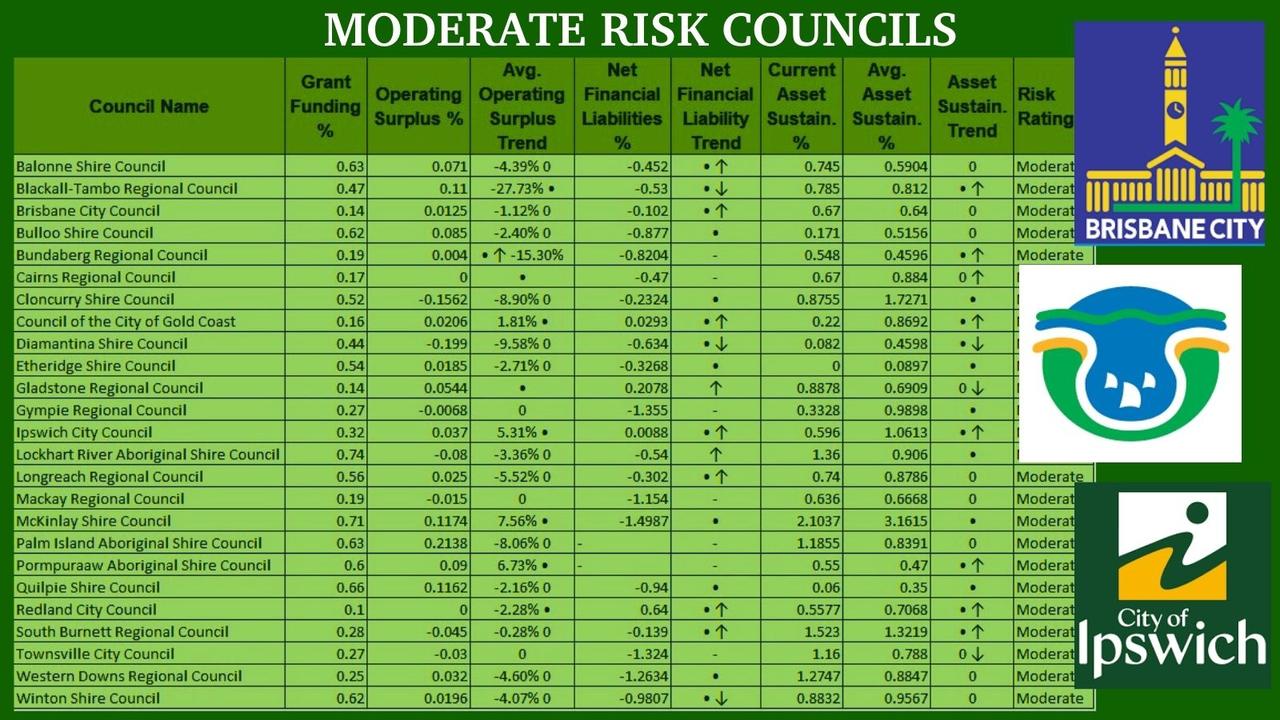
Redland, Ipswich, Gold Coast and Brisbane councils were named in the 2023-2024 report as having a moderate risk due to concerns over infrastructure renewal and rising liabilities.
In contrast, Logan, Moreton Bay, Fraser Coast and Toowoomba, were rated as lower risk, demonstrating stronger financial management.
One of this month’s report’s most striking revelations was that nine of the 12 councils without audit committees, were at “high financial risk”, – but it did not name them.
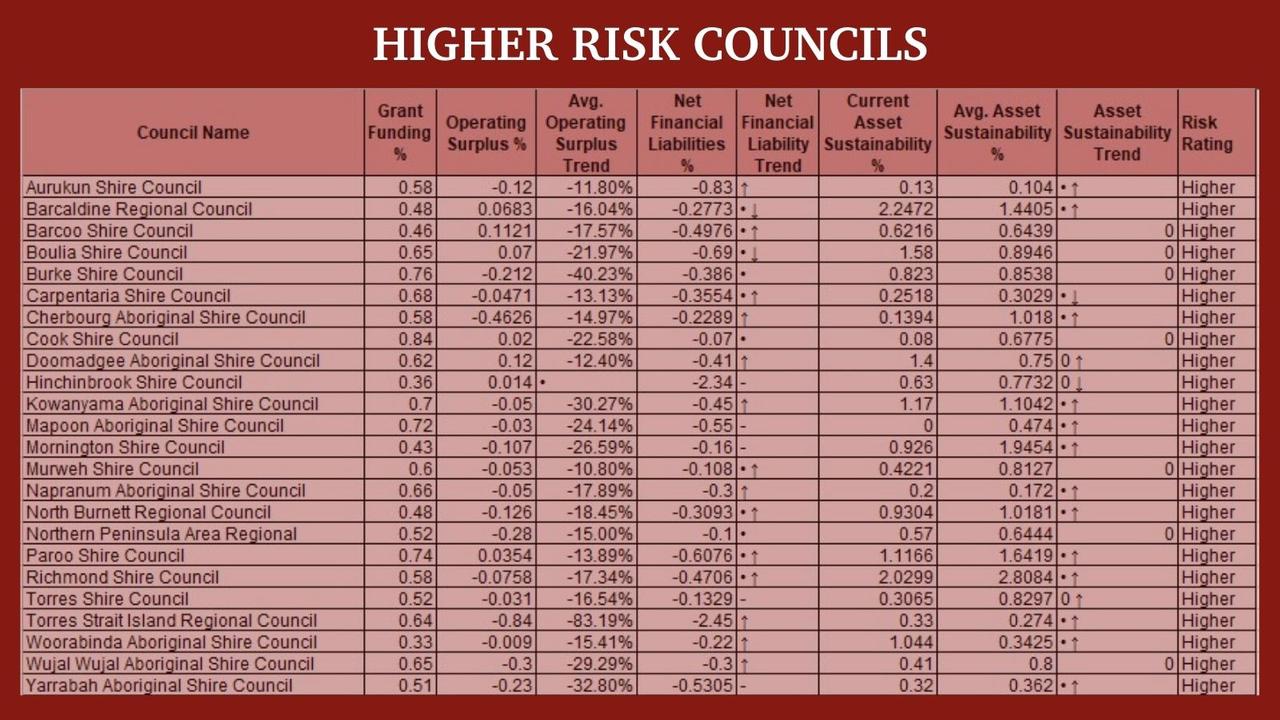
However, the 2023-2024 Local Government report listed higher-risk councils to include Aurukun Shire Council, Barcaldine Regional Council, Barcoo Shire Council, Boulia Shire Council, Cherbourg Aboriginal Shire Council, Cook Shire Council, Doomadgee Aboriginal Shire Council, Kowanyama Aboriginal Shire Council, Mapoon Aboriginal Shire Council, Mornington Shire Council, Napranum Aboriginal Shire and Wujal Wujal Aboriginal Shire Council.
The QAO’s findings have reignited discussions over whether Queensland should align with other states to enhance financial oversight.
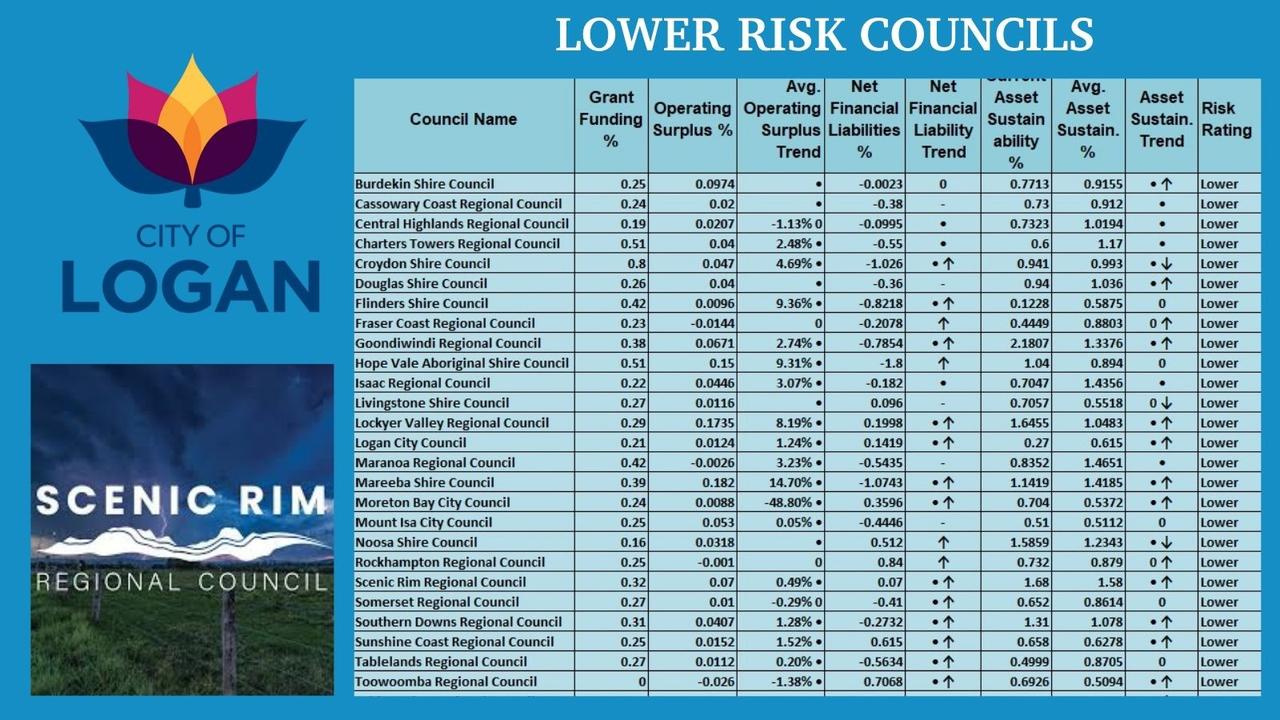
It also revealed that the 12 councils without audit committees collectively received more than $200 million in grants and subsidies from state and federal governments but did not disclose individual allocations.
To compile its findings, the QAO interviewed 10 audit committees from councils across the state but also failed to reveal which specific councils participated.
A notable aspect of the report was the inclusion of a letter from Redland City Council, one of only two local governments to formally respond to the QAO’s findings.
A spokesman from the QAO said updated financial data in the soon-to-be released Local Government 2024 report would provide a clearer picture of Queensland’s local government’s sustainability.
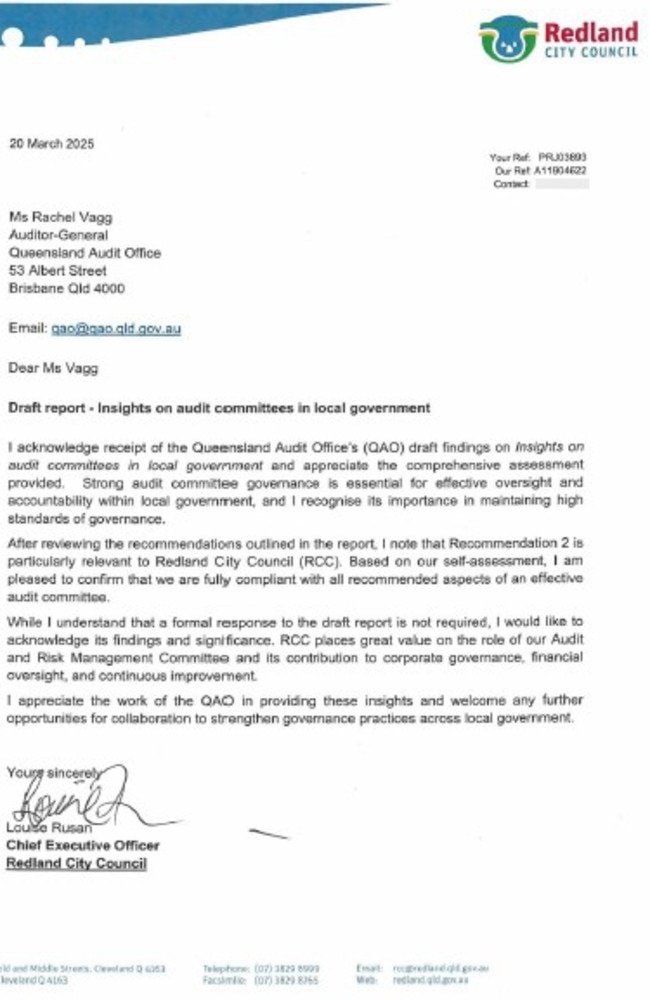
The updated local government report, due before July, is expected to include an interactive dashboard allowing comparisons across key financial metrics, including revenue, expenses, operating costs, assets, liabilities, and sustainability indicators.
The QAO spokesman said its latest report served as a warning for councils to strengthen financial governance and sustainability strategies.
“We do not report which councils do not have an audit committee publicly,” the spokesman said.
“We encourage councils without an audit committee to create one to help them strengthen their governance frameworks.”
More Coverage
Originally published as QAO pushes for audit committees amid gaps in councils’ financials





